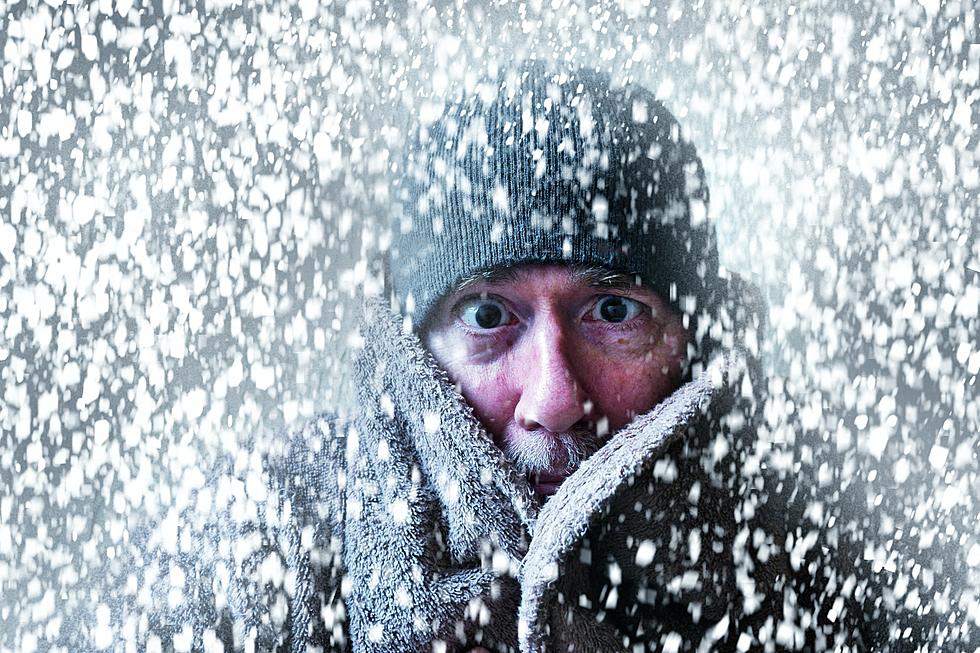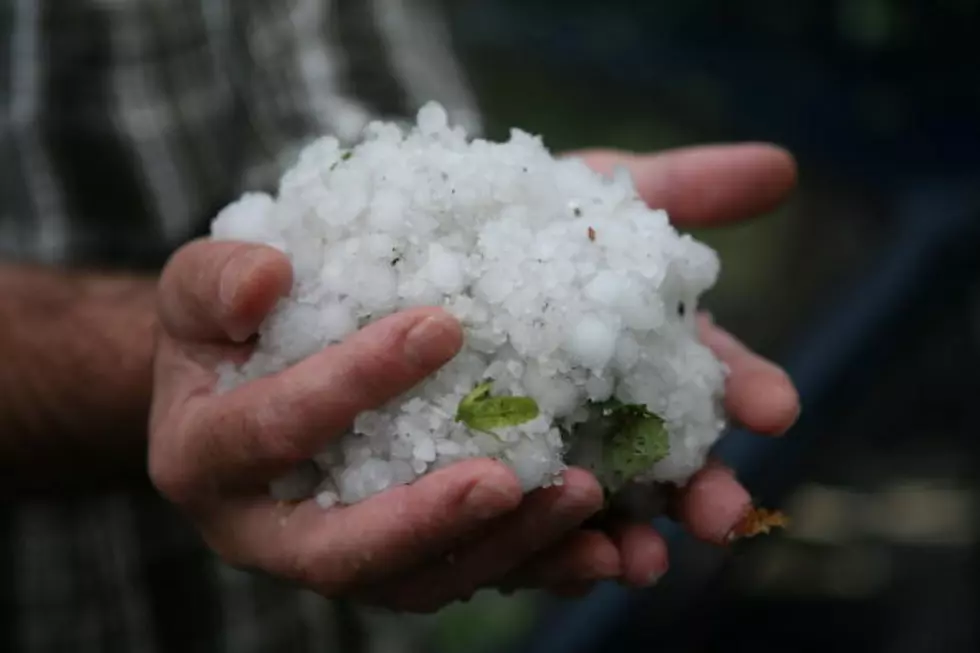
Plains Storm Gathers Strength, Cited in Road Death
ST. LOUIS - Parts of the nation's heartland awoke Thursday to more than half a foot of snow, as a large storm made its way eastward out of the Rockies, snarling traffic for morning commuters and allowing an army of children to trade pen and paper for shovel and sled, at least for a day.
Winter storm warnings were issued from Colorado through Illinois, and many school districts cancelled classes ahead of time, in anticipation of the more than a foot of snow expected to fall in some places.
Kelly Sugden, a National Weather Service meteorologist in Dodge City, Kan., said early Thursday that the storm that had already dumped heavy snow on Colorado and western Kansas on Wednesday was moving a bit slower than first expected, but was "starting to get back together."
"It's very active," Sugden said, noting the snowfall was mixed with lightning and sleet showers.
Kansas' capital, Topeka, had little more than a dusting of snow after dawn, but in the town of Rozel, roughly 210 miles west, 6 1/2 inches had already reported fallen.
Sugden said that while forecasters weren't expecting blizzard conditions to develop in Kansas, the Interstate 70 corridor could get as much as 13 inches of snow, and large drifts would make driving very dangerous.
In Oklahoma on Wednesday, roads were covered with a slushy mix of snow and ice that officials said caused a crash that killed an 18-year-old driver, Cody Alexander.
Alexander, of Alex, Okla., skidded in his pickup truck into oncoming traffic on State Highway 19 and was hit by a truck and killed, the Oklahoma Highway Patrol said. The other driver wasn't seriously injured.
In northern Arkansas, a school bus crashed Wednesday on a steep, snowy country road, leaving three students and the driver with minor injuries. Pope County Sheriff Aaron Duval said the bus slid off a road on Crow Mountain, nearly flipping before it was stopped by trees at the roadside.
The weather service warned that freezing rain could lead to a half-inch or more of ice accumulating Thursday in central and northern Arkansas, making travelling particularly dangerous.
Officials said the storm could be the Midwest's worst since a two-day storm that began Feb. 1, 2011. That storm was blamed for about two dozen deaths and left hundreds of thousands without power, some for several days. At its peak, the storm created white-out conditions so intense that Interstate 70 was shut down across the entire state of Missouri.
Tim Chojnacki, spokesman for the Missouri Department of Transportation, said it planned to have salt trucks on the roads before the storm arrived in the Show-Me State in hopes that the precipitation would largely melt upon impact.
Much of Kansas was expected to get up to a foot of snow, which many rural residents welcomed after nearly a year of drought.
Jerry and Diane McReynolds spent part of Wednesday putting out more hay and straw for newborn calves at their farm near Woodston in north central Kansas. The storm made extra work, but Diane McReynolds said it would help their winter wheat, pastures and dried-up ponds.
"In the city you hear they don't want the snow and that sort of thing, and I am thinking, `Yes, we do,' and they don't realize that we need it," she said. "We have to have it or their food cost in the grocery store is going to go very high. We have to have this. We pray a lot for it."
Meanwhile, a separate snow storm caught many drivers by surprise in California, leaving hundreds stranded on mountain highways. A 35-mile stretch of Highway 58 between Mojave and Bakersfield was closed Wednesday, and several school districts closed. No injuries were reported.
Schools also were closed in northern Arizona and Colorado with snow there. Mindy Crane, a spokeswoman for the Colorado Department of Transportation, said hundreds of plows had been deployed for what was expected to be one of the most significant snow storms of the season.
Just the threat of snow led to a series of shutdowns in the middle of the country. Kansas Gov. Sam Brownback closed state government from Thursday morning through Friday morning and urged residents to stay off the roads.
Lawmakers in Nebraska and Iowa cancelled committee meetings and hearings, and the Arkansas Senate voted to recess until Monday so lawmakers could make it home before the worst of the storm hit. University of Nebraska officials moved a Big Ten men's basketball game against Iowa from Thursday to Saturday.
National Weather Service meteorologist Jayson Gosselin said precipitation is generally expected to drop off as the storm makes its way east. Chicago and parts of Indiana, he said, could get about 2 inches of snow and some sleet.
Copyright 2013 The Associated Press. All rights reserved. This material may not be published, broadcast, rewritten or redistributed.
More From KIKN-FM / Kickin' Country 99.1/100.5









